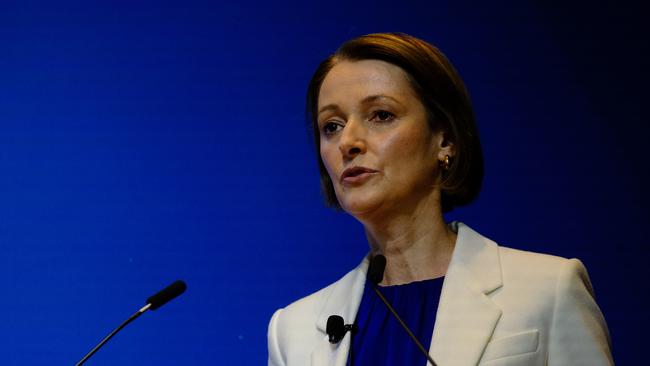Australian Competition Tribunal knocks back landmark $1.8bn TPG and Telstra deal
The telco majors’ network share deal has been rejected after the Australian Competition Tribunal declared it would hurt consumers.

TPG and Telstra have been dealt a heavy blow after the Australian Competition Tribunal knocked back an appeal by two of the nation’s largest telcos on a landmark $1.8bn network sharing deal.
The ACT ruled in the same regard as the ACCC on the TPG-Telstra network sharing deal, finding the deal would further increase Telstra’s position of market strength.
“Despite the difference in approach, the Tribunal has reached the same decision as the ACCC,” Justice O’Bryan declared on Wednesday.
In its summary, the ACT said the deal would likely negatively impact the likelihood of Optus to further roll out 5G across the nation, ultimately reducing competition and hurting Australian consumers.
“The Tribunal considers that the spectrum authorisation agreement would not materially affect TPG’s competitive position in the mobile telecommunications market,” Justice O’Bryan said.
“In contrast, the tribunal considers that the spectrum authorisation agreement provides Telstra with substantial commercial and competitive benefits and would further increase Telstra’s position of market strength in mobile telecommunications markets at both the retail and wholesale levels.”
Optus chief executive Kelly Bayer Rosmarin said it was “a good outcome” that the Tribunal blocked what the nation’s second-largest telco considered to be an “anticompetitive arrangement”.
“This is a good outcome for our regional communities as it will mean they will continue to benefit from competition as Optus reaffirms its commitment to providing Australia’s regional communities with a strong network and great service,” she said.
Todd Barlow, chief executive of Soul Patts, which owns a 12.25 per cent stake in TPG, said the firm backed the deal, which ultimately presented a better opportunity for consumers.
“We’re in favour of the deal because we thought it makes sense. It barely makes sense for there to be three network operators in metro let alone in regional areas,” he said.
The ruling saw investors dump TPG shares, which were down 7 per cent to $5.17 mid-Wednesday morning. Telstra’s shares were up 0.7 per cent to $4.45 in a slightly lower market.

While TPG did not rule out appealing the decision, the telco’s boss Inaki Berroeta said that the ACT verdict only cemented the state of the telecommunications market.
“This determination entrenches the status quo for mobile coverage in regional Australia,” he said.
TPG has on several occasions knocked back the idea of a network sharing deal with Optus, which is understood to do little for the telco in the way of expansion. A TPG-Optus deal appears to be the preferred path from the ACCC and a plan Optus supported.
In response to the ACCC, TPG last year wrote that the incentives from a TPG-Optus deal would “be more likely to drive the parties apart”.
The deal would have allowed Australia’s third-largest telco to expand the number of mobile sites it had by fives time, which would have resulted in an overall coverage growth of 2.8 per cent.
“We are not giving up on regional Australia and will consider our options as well as advocating for policy reform that will deliver greater competition and choice in the regions that need it most”, he said.
TPG also reaffirmed its guidance for the 12 months to December 31, with expected earnings before interest, taxes, depreciation and amortisation of between $1.85bn to $1.95bn. The costs of the Tribunal would be between $20m to $25m.
“Our ability to hold our FY23 guidance range despite these additional costs reflects our resilient service revenue performance and strong operating cost discipline in the first half of FY23 to date,” Mr Berroeta said.
Telstra boss Vicki Brady said the benefit to regional Australians under the deal would have been instant, and that the result overall was “disappointing”.
“What we’ve tried to do is take an innovative approach to improve experiences for our customers and to answer calls from stakeholders, including governments, to provide better mobile connectivity, more coverage and more choice for our customers. The agreement with TPG would deliver these benefits almost immediately and for the long-term,” Ms Brady said.

Investment in towers in regional areas “was not always commercially viable or an efficient use of capital or government funds”, Ms Brady said.
“As 5G drives increased data use and with 6G on the horizon, as a country we need to be smarter about how we use our spectrum assets and there is a role for the government to look at how we do that more efficiently,” Ms Brady said.
“At the moment we’re limited in the amount of spectrum we can buy at auction and, as today’s result shows, limited in the type of commercial arrangements we can put in place to improve services for our customers.
“While Telstra will continue to have Australia’s largest and fastest mobile network, what today’s decision means for the industry – at least for now – is less choice and valuable spectrum in regional Australia going unused.”
The Tribunal said in its summary that it was “not satisfied” the deal, particularly regarding the use of TPG’s spectrum licenses, met conditions of authorisation under the competition and consumer act, Justice O’Bryan said.
Prior to the ACT’s decision, the ACCC had knocked back the deal in late December last year.
The competition regulator had said it was hard to determine the long term benefits of the deal and that it believed its approval may have seen the nation’s second-largest telco, Optus, pull back on its plans to roll out 5G across the country.
Telstra and TPG appealed the ACCC’s decision, and argued the ACCC had misunderstood the mobile network sharing deal.
Both also denied the ACCC’s ‘hypothetical’ vision that would have seen TPG look to form a similar network sharing deal with Optus – which appeared to be ACCC’s preferred option.
The Tribunal’s view on Wednesday was that the network-sharing deal was that it would have delivered a significant benefit and allowed Telstra to strengthen its position in comparison to its rival and the nation’s second-largest telco Optus, the Australian Competition Tribunal said.
“The Tribunal accepts that the proposed transaction has pro competitive benefits, in that it would be likely to improve the competitive position of TPG in comparison to the likely counterfactuals,” Justice O‘Bryan read in the Tribunal’s summary.
The deal would also allow Telstra to maintain its position over TPG and Optus.
“However, the proposed transaction would also deliver to Telstra material competitive advantages, which would be likely to have the effect of weakening the competitive position of Optus,” Justice O‘Bryan said.
“The proposed transaction will enable Telstra to improve its network capacity and speed in the 80 per cent plus population coverage area. Decrease coverage gaps compared to Optus and improve the economics of its regional network, which would better enable Telstra to maintain its overall network advantages over Optus and TPG.”
The head of Australia’s telco challenger alliance said approving the TPG-Telstra network sharing deal would have given the nation’s largest telco too much control over mobile pricing.
“This deal would have handed a dominant provider control over mobile pricing, service availability and service standards in the middle of a cost-of-living crisis,” said Michelle Lim, chair of Commpete.
“Now, more than ever, Australians deserve the benefits of choice and a competitive mobile sector. Likewise, smaller providers, many of whom have been championing greater competition, should be entitled to a fair go. Commpete commends this decision by The Tribunal.”
Ms Lim called for stronger legislation surrounding network sharing deals and competition within the telecommunications industry
“While mergers that are ‘likely’ to lessen competition are prohibited, we need to better define ‘likely’ in the legislation, making it clear the substantial lessening of competition includes “entrenching, materially increasing or materially extending a position of substantial market power.”







To join the conversation, please log in. Don't have an account? Register
Join the conversation, you are commenting as Logout